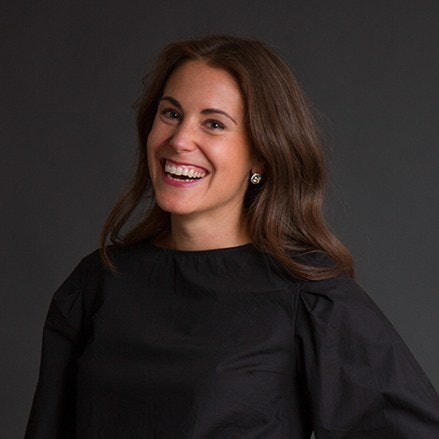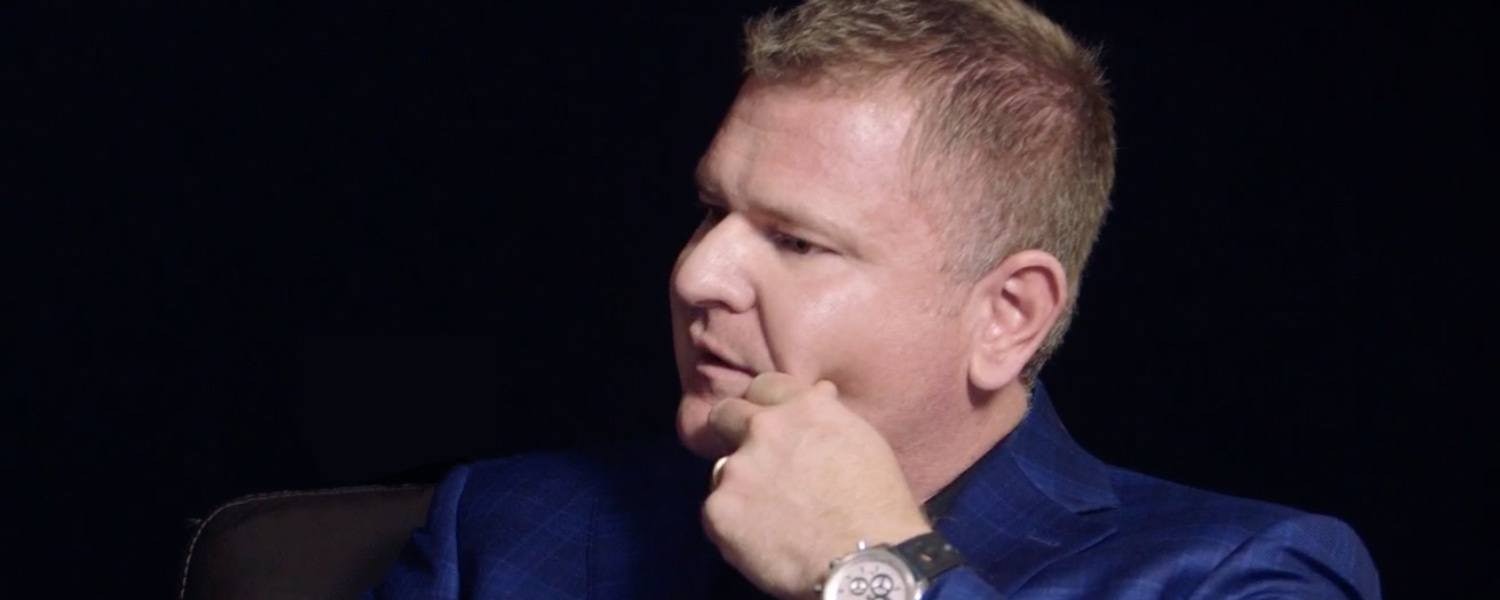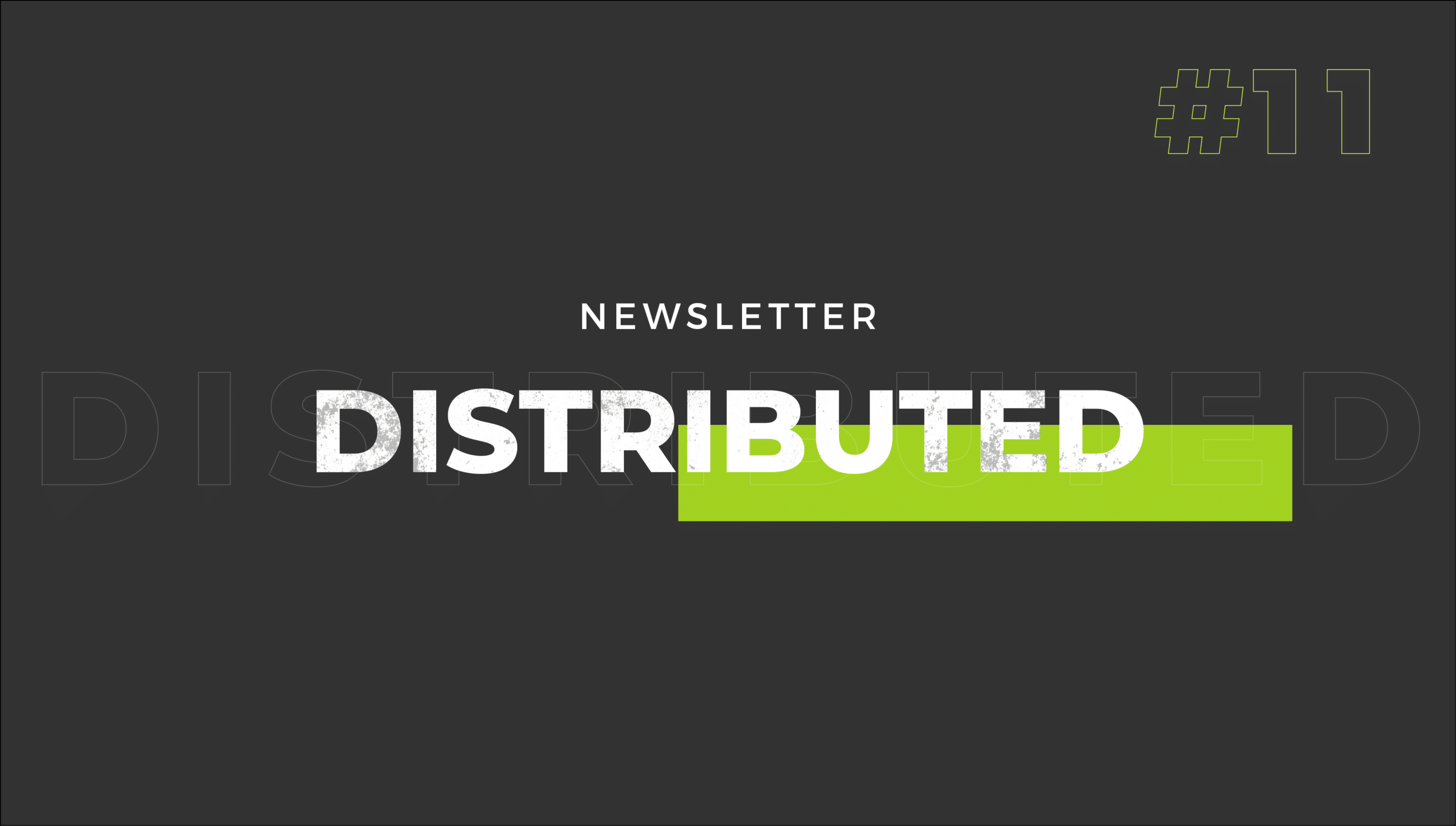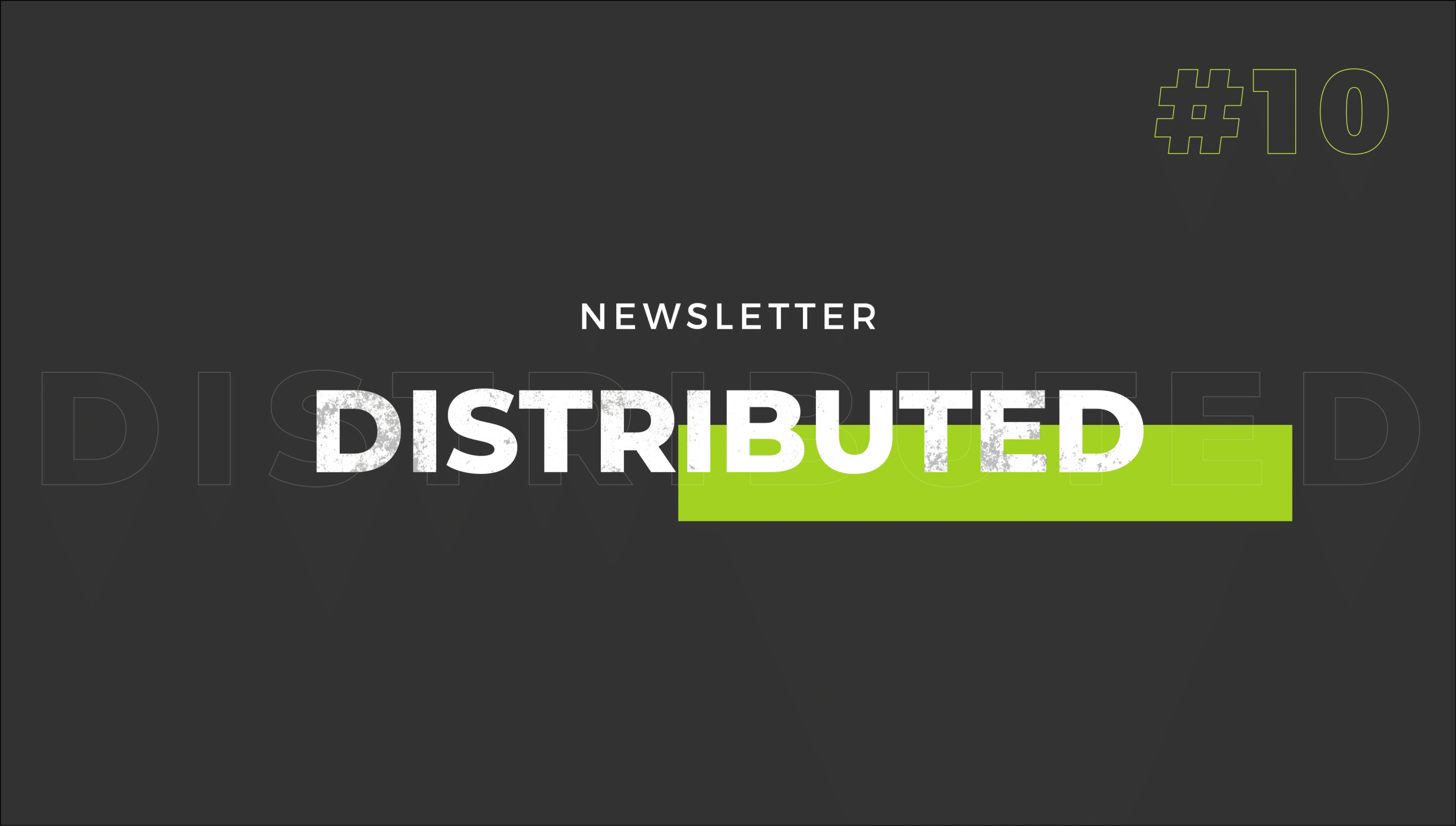Tim Kopp has what many would call a stud of a resume (myself included). After starting his career at Procter & Gamble, he moved on to a critical role at Coca-Cola as their first VP of Worldwide Interactive Marketing. That led to him to what from an outsider’s view looked like the opportunity of a lifetime: he became the CMO for ExactTarget, and while there, led them through an IPO as well as a $2.7B acquisition by Salesforce.
Since then, he’s been working in the venture capital space as an investor, manager, and mentor, helping to build the tech space in the Midwest.
I had the pleasure of sitting down with Tim to talk about his career and the impact it has had on his approach toward leadership, employer branding, marketing, and life.
In the first of my four-part bold story interview series with Tim Kopp, he and I discuss what the true job of a leader is and how that job affects a leader’s approach to hiring and mentorship.
Don’t miss the rest of my interview with Tim:
- Part 2: Tim Kopp on Employer Branding
- Part 3: Tim Kopp on Balancing Brand and Demand Generation
- Part 4: Tim Kopp on Work-Life Balance
My Top Five Takeaways from Our Interview:
1. Design yourselves out of a job
“I actually do believe your job as a leader is to design yourself out of a job.
I used to think, ‘Boy, I wish I could create something that’s so important it only works if I’m here, and that I’ll be so important and I won’t even be able to take a vacation.’ I actually think that’s really poor leadership in hindsight.
If you are operating from the scarcity mindset of, ‘I’m going to manage my empire’ (that’s what I struggled with in some bigger corporations), it feels like you’re playing defense. More ‘I’m going to defend my turf,’ than, ‘Let’s go and do something new together and take risks.’
Your job is to build something that’s so much bigger and better than you and it transcends you and that you can back out of it and it’ll still keep running.”
2. Everybody wants to be a part of something bigger than themselves.
“What really keeps me fueled is working with other great people. I had this fortunate experience of ten years with bigger CPG companies where I got great training. But what I was missing was impact, and I wanted to go somewhere smaller where I could see the incremental time that I was putting in and what kind of impact it was having.
That’s what I really love about this next chapter that I’m writing now, it’s unleashing the full potential of the next generation of entrepreneurs. And I think everybody wants to be part of something that’s bigger than themselves and this chapter is helping them to write and architect those stories.
Sometimes they just need a little nudge or a little push. Sometimes it’s money and capital, but a lot of times, it’s just the right piece of advice at the right time.”
3. Recruit for leadership, problem-solving, and communication. Marketing can be taught.
“I actually think our entire education system today, as it relates to teaching business and marketing, is completely backward, because it’s a discipline of: here’s the way you do it, read the book, go memorize it, play it back in this way. And…there is no playbook. And it’s not about memorizing it even if there was.
So I don’t know that hiring somebody out of school with a marketing degree is super helpful, to be honest, at least for the way I think about marketing.
I think they’re still teaching a lot of the five P’s. And it’s not the professor’s fault. How would you know any better unless you’re doing the work?
But the thing is, [marketing] can be taught. I mean it really can be taught. And I think I’ve tried to prove that out in every role, but ExactTarget was really the case study.
On my team, there were teachers, people who were officers in the military, people who were creative, strategists, and stay-at-home moms coming back into the workforce. In some ways, it would seem like a ragtag bunch if you looked at the resumes. But I always say I recruited for leadership, problem-solving, and communication skills.
If you can find somebody who knows how to do all of those things, teaching marketing is not that hard. I mean it’s really strategy. And if you can understand those things, I can teach you the softer pieces.”
4. Not everything has to be perfect. Failure is okay.
“It’s important [as a leader] to encourage a mindset of, ‘we’re all in this together.’ Not everything has to be perfect and failure is okay. Sure, you can’t fail all the time. You should probably be failing closer to 10% of the time than 90%. But the idea of continually taking risk and pushing one another is critical.”
5. Get beyond the highlight reel in your 1:1s.
“One of the things high achievers struggle with is busyness equals effectiveness. To help them deconstruct it, it’s important to help them understand that it’s great you did those 22 things. But as a reminder you have these two or three objectives for your role—sometimes being too busy can be really bad.
So I really don’t want to hear how busy you are. What I want to hear is: these are your goals. How are you doing against those goals?
And the job of a leader should be to make sure that somebody knows what it takes to be successful; otherwise, you’re just always thrashing. And the more you thrash, the busier you get. So I think the first thing you have to do is explain to somebody, these are the three key objectives you’re responsible for.
Some of it comes out in your coaching sessions and the one-on-ones in the way you interact. The two questions I like to ask are: ‘Where can I help?’ and… ‘What isn’t going well?’
We’re coached to just go through and give our supervisors the highlight reel. As a supervisor, that’s awesome, but I can’t do a ton with the highlight reel. I know you’re doing awesome, but what isn’t going well and where can I help? That’s what I really want to know. And how can I help get you back on track? And I think it’s getting people comfortable by just asking those questions: ‘What isn’t going well? And where can I help?’”
—
Transcript
Tiffany: Hi everyone. I’m Tiffany Sauder and I’m the president of Element Three and I’m super jacked today to be here with Tim Kopp.
I’m not actually going to even waste my time talking about what his title is right now because he has a super sexy stud of a resume, and I think it makes sense to give some construct to that. He started out of school at Procter & Gamble, then moved to Coca-Cola, spent a short amount of time at a small tech company, and then got, from an outsider’s view what looks like the opportunity of a lifetime, to be the CMO for ExactTarget, and while there, led them through an IPO and also the acquisition by Salesforce.
And since then, he’s been working in the venture capital space, making personal investments and really leveraging and leaning into the tech space in the Midwest.
Tim: Absolutely.
Tiffany: Thanks for coming. This going to be really fun.
I guess I’ll start this out in that, from an outsider’s perspective, if I look at your career, it really has a whole lifetime of exclamation points in it. I don’t know if I were looking at it to say, “You know, maybe I’m done. Maybe, maybe this can be the end and finally, there’s a period.”
But clearly, it doesn’t look like you’re slowing down at all. So I’d be interested in knowing what keeps you in the game. What keeps you pushing so hard? Because I think oftentimes we look at it and say “Well, if I don’t have to do it for the money, what is going to keep me going?”
You can’t say your age either. You can’t say I’m too young to retire. That’s a bailout.
Tim: The first thing I would say it’s only with the benefit of hindsight do they feel like exclamation points.
When you’re in the trenches, it didn’t feel necessarily like an exclamation point. You’re just trying to do the right things and work with the right people. And then I think it is with the benefit of hindsight, it feels like “Wow!” And I hope what I’m doing now creates another wow.
What really keeps me fueled is working with other great people. I had this fortunate experience of 10 years with bigger CPG companies where I got great training. But what I was missing was impact, and I wanted to go somewhere smaller where I could see the incremental time that I was putting in and what kind of impact it was having.
That’s what I really love about this next chapter that I’m writing now, it’s unleashing the full potential of the next generation of entrepreneurs. And I think everybody wants to be part of something that’s bigger than themselves and this chapter is helping them to write and architect those stories.
Sometimes they just need a little nudge or a little push. Sometimes it’s money and capital, but a lot of times, it’s just the right piece of advice at the right time.
One of the things we talk about a lot within ExactTarget and part of that story is probably 90% of my team had very little marketing experience before I hired them. I was just hiring the right kind of people with the right kind of profiles and then unleashing their full potential.
That’s what keeps me really excited. Now I’m able to watch the other people I’ve interacted with and see them go and hit their full potential.
Tiffany: So do you look back and see in the first 10 years or so the people who saw the Tim Kopp today before you did that believed your potential was this high and shoved you through doors?
Tim: Totally. I think it takes somebody to see that in you before you see it. I remember one of my first managers at P&G was a guy named John Stickla. Several months into our one-on-ones, he said, “You realize I’m going to be working for you soon, don’t you?” I said, “No,” and was laughing as I did it.
And he said, “I’m not kidding. So I’m not preparing you for what’s in this job; I’m preparing you for what’s in the next job.”
And sure enough, when I went to Coke, he was one of the first people I called to come on and be my key director and work with me.
It does take people who see that in you before you see it to call it out. Because when you’re in the battle, you don’t see it.
Tiffany: How cool that he had the confidence to be able to even see greater potential in you than he possessed himself? To be able to say, “I’m going to work for you someday,” I hope I have that confidence to be able to not only see my strengths but my limitations. And be able to own with the same amount of bravado both of those parts of you.
Tim: I do think the world is so big now, and it’s changing so fast, I actually do believe your job as a leader is to design yourself out of a job.
I used to think, “Boy, I wish I could create something that’s so important it only works if I’m here, and that I’ll be so important and I won’t even be able to take a vacation.”
I actually think that’s really poor leadership in hindsight.
Your job is to build something that’s so much bigger and better than you and it transcends you and that you can back out of it and it’ll still keep running.
That’s what made me so happy through the ExactTarget experience. I built a leadership team, a team I was so proud of that I felt like my work there was done. I could step out of it, and it’s going to continue to run, and it’s going to run beautifully. That’s really what gets me jacked up.
Tiffany: That takes an abundant mindset to be able to do that, too, right? To know that if I work myself out of job, there’s going to be another thing.
Tim: There’s always more to do.
Tiffany: As I look at young talent and even work on my own perspective sometimes, dialing in your head game is a really big piece of that.
Tim: I think if you are operating from the scarcity mindset of, “I’m going to manage my empire” (that’s what I struggled with in some bigger corporations), it feels like you’re playing defense. More “I’m going to defend my turf,” than, “Let’s go and do something new together and take risks.” You need to design yourself out of things.
I’ve also had so many people give me work to do that I felt like I was not worthy or capable of doing. Their response? “You can do it, you can figure it out.” In that situation, I say, “Ok, I’ll try to do it and if nothing else, if I don’t know how to do it, I can recruit the right people to do it.”
Tiffany: So at ExactTarget many of the people you hired, at least in the marketing space, didn’t necessarily have marketing backgrounds. I feel like the awesome thing about marketing in the year 2017-2018 is that it sheds its skin all the time, right?
Tim: Right. That’s a good way to put it.
Tiffany: The moment you think you know the game, you’re toast if you stop learning. So how have you sought to be able to find learning agility or curiosity in people that you hire? And on the other side, how do you create an environment where there’s training coupled in an environment of high growth? Because that can be an elusive intersection.
Tim: Yeah. So there are a few things there.
First off, hiring people with a marketing background, I don’t even think they teach it right in college now. So I don’t know that hiring somebody out of school with a marketing degree is super helpful, to be honest, at least for the way I think about marketing.
I think they’re still teaching a lot of the five Ps. And it’s not the professor’s fault. How would you know any better unless you’re doing the work? So it’s a dilemma.
But the thing is, [marketing] can be taught. I mean it really can be taught. And I think I’ve tried to prove that out in every role, but ExactTarget was really the case study for proving that out.
On my team, there were teachers, people who were officers in the military, people who were creative, strategists, and stay-at-home moms coming back into the workforce. In some ways, it would seem like a ragtag bunch if you looked at the resumes. But I always say I recruited for leadership, problem-solving and communication skills.
If you can find somebody who knows how to do all of those things, teaching marketing is not that hard. I mean it’s really strategy. And if you can understand those things, I can teach you the softer pieces. Then it’s just a matter of surrounding yourself with really good specialists.
To your point, now I’m going back, reflecting on my answer to the first question: What keeps me doing what I’m doing?
It’s critical to keep learning. I personally learn by doing more than I do reading. Reading is very helpful, and I’m an avid reader, but I just like to jump in the trenches and learn and mess things up and surround myself with people who are far better than I am at doing particular things, and then learn and eventually help other people reapply.
It’s important to encourage a mindset of, “we’re all in this together.” Not everything has to be perfect and failure is okay. Sure, you can’t fail all the time. You should probably be failing closer to 10% of the time than 90%. But the idea of continually taking risk and pushing one another is critical.
I’ve almost come to understand the job of a leader to be a little bit more like a chef. It’s kind of like, “How do you bake a cake?” You put together all the right ingredients. I’ve had people on my team who are super aggressive. They would be the sriracha sauce of a dish. You don’t want too much sriracha sauce, right? But just the right amount of sriracha can really make a meal. The trick is understanding how to bake the cake and put the whole thing together.
Tiffany: Especially in traditional academic settings, we are given assignments, our papers are graded, and we’re told if it was like right or wrong. But yet, when you get into a place where you’re practicing in business, in particular I think marketing, you alluded to the messy part of learning, of iterating, of being comfortable with the failure cycle. And you can’t necessarily lift all the key learnings from a successful campaign and say, “Oh good news, I have the template now. I can get 17 people to do this.”
So how have you, through coaching, leadership, and demonstration, gotten people comfortable at that margin of messy that comes in this discipline in particular?
Tim: Yeah, it’s a great question. So first off, the educational system, I can’t help but go there. I actually think our entire education system today, as it relates to teaching business and marketing, is completely backward, because it’s a discipline of: here’s the way you do it, read the book, go memorize it, play it back in this way. And that’s, there – to your point, there is no playbook and it’s not about memorizing it even if there was.
So it’s much more about these softer skills which are much more difficult to evaluate. How do you give a grade for how well can somebody connect with other people? How are they able to show empathy and show leadership? You can’t grade those, but I actually think it’s what can make you far more successful. You just have to learn how to interview for some of that. How do you pull it out of people — is that where you were headed?
Tiffany: You know, just how you get them comfortable with messy. Because throughout the years you go to school, you’re rewarded with an A if you get it right and you’re rewarded with an F if you get it wrong. We struggle with this as a business — you get high potential, high octane 20-something-year-olds that want to come in and prove the crap out of things and show that they know how to do it. But it’s difficult to get them comfortable with this cycle of not being afraid to try.
One of the things I try to do is prop up as loudly as I can when I was just super wrong. Let’s all notice that wasn’t the end, and that gave us new information so that we could make a little bit better decision the next time. Are there tips and tricks around that?
Tim: Boy, I don’t know if I figured it out. I’m sure trying. I do think there are two components: a what and a how. I think one of the things that high achievers struggle with is busyness equals effectiveness. To help them deconstruct it, it’s important to help them understand that it’s great you did those 22 things. But as a reminder you have these two or three objectives for your role — sometimes being too busy can be really bad.
So I really don’t want to hear how busy you are. What I want to hear is: these are your goals. How are you doing against those goals? And the job of a leader should be to make sure that somebody knows what it takes to be successful; otherwise, you’re just always thrashing. And the more you thrash, the busier you get. And so I think the first thing you have to do is explain to somebody, these are the three key objectives you’re responsible for.
And I think some of it comes out in your coaching sessions and the one-on-ones in the way you interact. The two questions I like to ask is: Where can I help? And then the second one is: What isn’t going well?
We’re coached to just go through and give our supervisors the highlight reel. As a supervisor, that’s awesome, but I can’t do a ton with the highlight reel. I know you’re doing awesome, but what isn’t going well and where can I help? That’s what I really want to know. And how can I help get you back on track? And I think it’s getting people comfortable by just asking those questions: “What isn’t going well? And where can I help?”
Tiffany: I love that comment about the highlight reel. Because if I’m honest, on my lazy days as a leader, I have more energy to hear good news than I do bad.
Tim: Totally.
Tiffany: And it is a much easier one-to-one if I end that meeting with no to-dos or stuff I need to fix. So keeping us on our toes as leaders to really ask those questions and to make a really easy space for that to happen is a good thing.
Tim: But you’ll notice, I say I try to do that, not that I do that.
Tiffany: Well, I’m going to give you credit for doing it all the time.
Tim: [LAUGHS] I’ll accept it, thank you.





